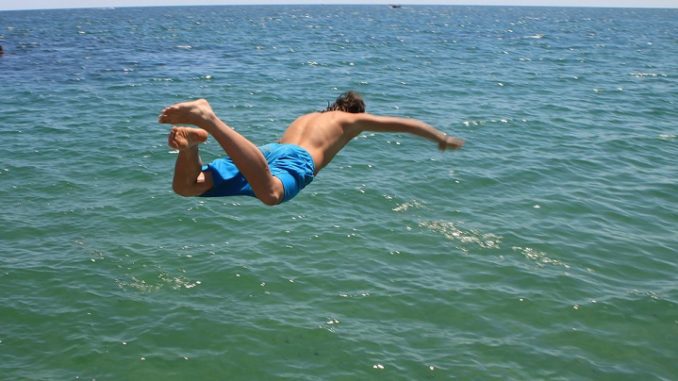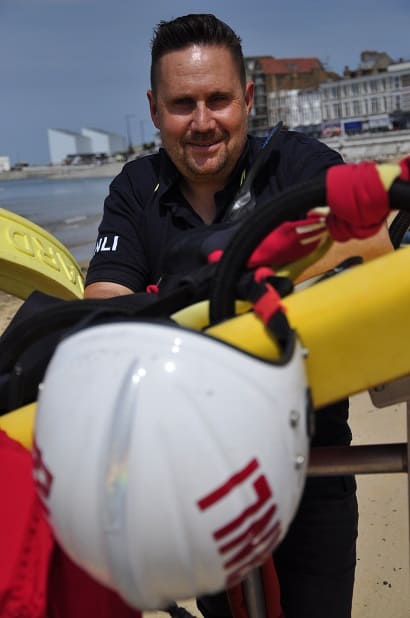
HM Coastguard Margate and Thanet’s RNLI Lifeguard service have issued a warning about jumping into the sea from piers or groynes after a youth suffered injuries in Broadstairs on Friday (June 26).
HM Coastguard Margate were tasked by UK Coastguard to assist South East Coast Ambulance Service in recovering the male who had jumped into the sea from Broadstairs Pier and had hit the bottom.
The youth had made it ashore with a suspected broken ankle and knee. After he received some first aid help from a bystander the emergency service arrived and he was given pain killers, put on a stretcher and taken off the beach.
Thanet’s RNLI Lifeguards have highlighted the dangers of tombstoning -jumping or diving from a height into water.
Water depth is often deceiving and can result in injury at low tide. Hidden dangers beneath the water include dumped items such as shopping trolleys which are often found and removed.

Senior RNLI Lifeguard Supervisor, Stuart Cattell, said: “We know it can be very tempting during hot weather to jump into the sea from a pier or groyne, especially if you’re on the beach with a group of friends.
“Unfortunately it’s impossible to see hidden hazards under the surface, or to tell how deep the water is. Tombstoning means playing Russian roulette with your own safety.
“There have been 20 tombstoning deaths in the UK since 2005 and 70 reported injuries. Several people ahead of you might jump safely, but if you hit the beach – or a piece of wood or concrete on your way down – at the wrong angle, you could end up with life-changing head injuries, broken bones or permanently paralysis.
“Please stick to enjoying the weather and the sea by swimming or using kayaks or SUPs safely.”
In a coastal emergency dial 999 and ask for the Coastguard

